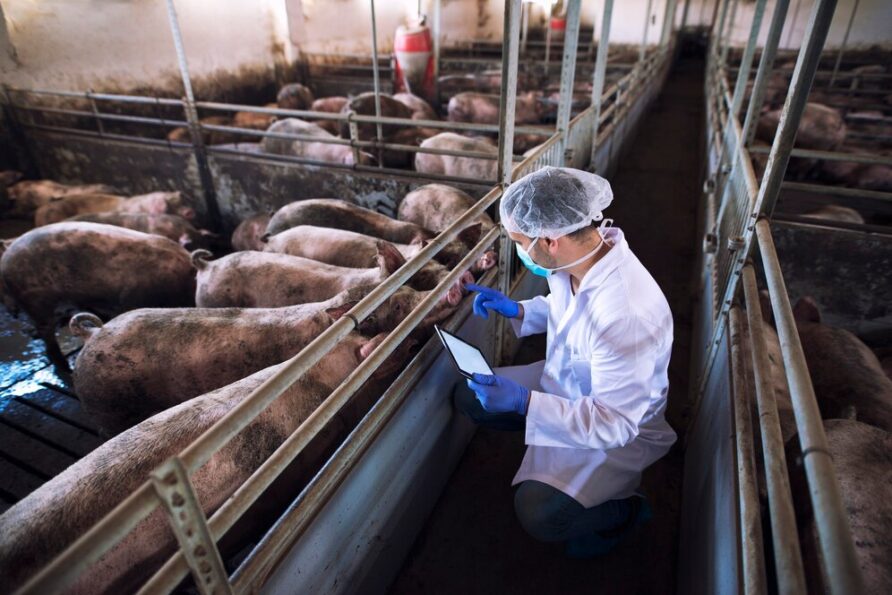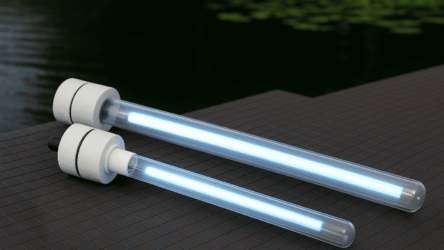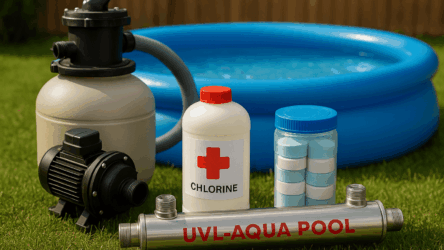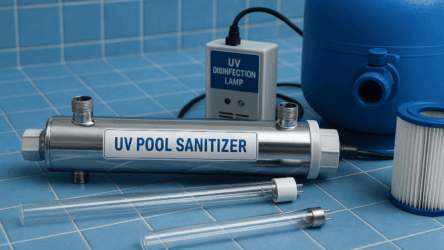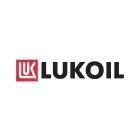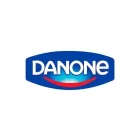Agriculture and livestock production are critical to the global food supply, and maintaining hygienic conditions on pig farms is essential to ensure animal health and farm productivity. Bacteria and airborne diseases can rapidly spread within swine facilities, leading to outbreaks and economic losses. Ultraviolet (UV) air disinfection at 254 nm is an effective solution for reducing pathogen transmission and protecting livestock, especially vulnerable young pigs.
Why air disinfection is crucial for pig farms
Young pigs are highly susceptible to various infectious diseases, including:
- Swine fever
- African swine fever
- Respiratory infections caused by bacteria and viruses
Without proper air disinfection, pathogens can spread through ventilation systems and air currents, increasing the risk of disease outbreaks and high mortality rates. Additionally, poor air quality negatively impacts animal welfare, reducing growth rates and productivity.
How UV-C disinfection works
Ultraviolet germicidal irradiation at 254 nm neutralizes airborne bacteria and viruses by disrupting their DNA, preventing replication and infection.
Key advantages of UV disinfection:
- High efficiency – UV-C light eliminates a broad spectrum of microorganisms, creating a cleaner and safer environment.
- Chemical-free solution – Unlike traditional disinfection methods, UV does not require chemical agents and leaves no harmful residues.
- Safe for animals and farm workers – Properly installed UV disinfection systems operate safely without direct exposure to pigs or staff.
UV air disinfection equipment for pig farms
Several types of UV disinfection systems can be integrated into swine facilities:
- Bactericidal UV sections for ventilation systems – Installed directly into HVAC or air ducts, these units disinfect incoming air, preventing the spread of airborne pathogens.
- Open UV irradiators – Mounted inside pig housing units, these UV lamps operate when animals are not present, disinfecting air and surfaces before livestock re-enter.
- UV air recirculators – Continuous air treatment devices that safely disinfect circulating air throughout the day, providing round-the-clock protection for pigs and farm workers.
Conclusion
UV air disinfection on pig farms is a crucial biosecurity measure that helps prevent disease outbreaks, reduce infection risks, and maintain farm productivity. By implementing bactericidal UV ventilation sections, open UV irradiators, and UV air recirculators, farmers can significantly enhance hygiene standards, protect livestock health, and improve pork quality for consumers. UV disinfection is a reliable, cost-effective, and chemical-free solution for modern swine farming operations.

